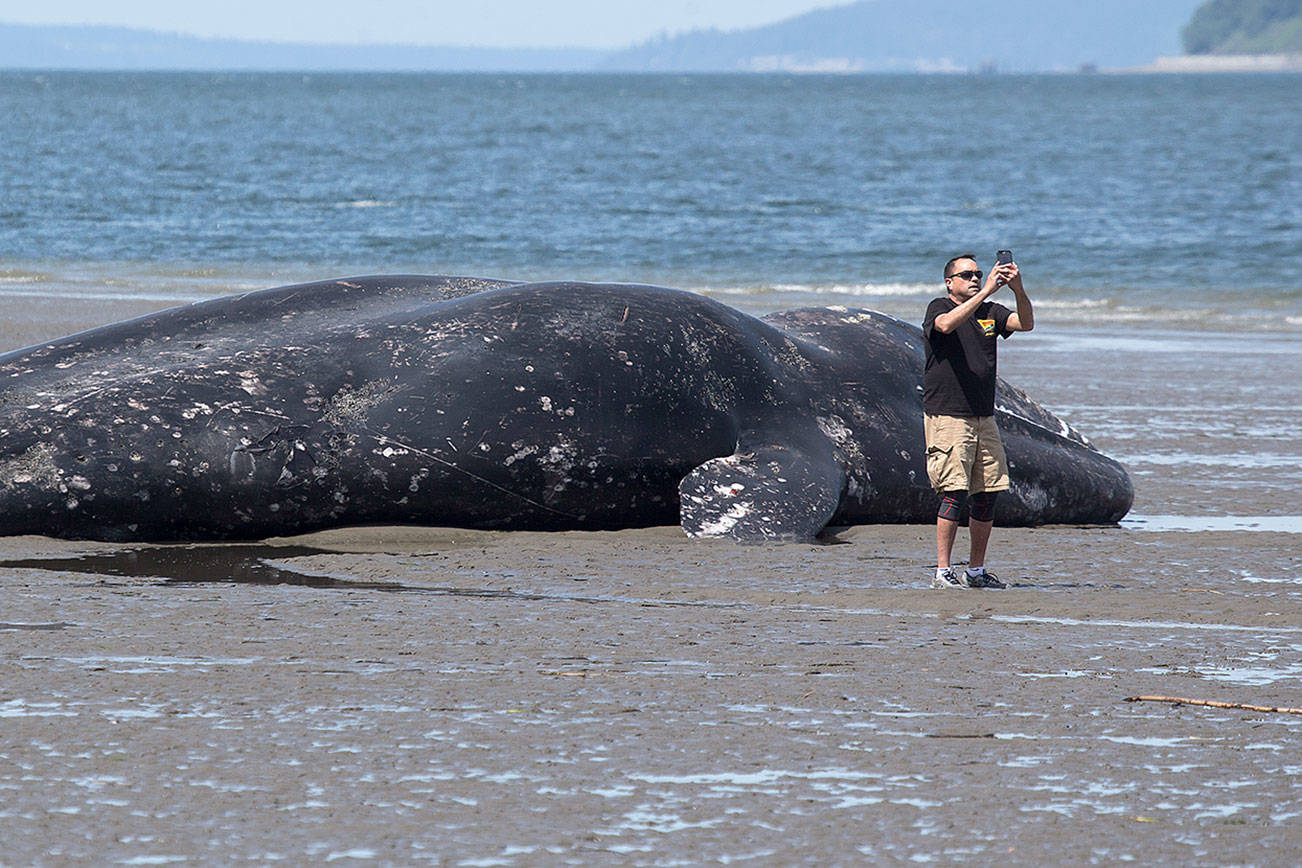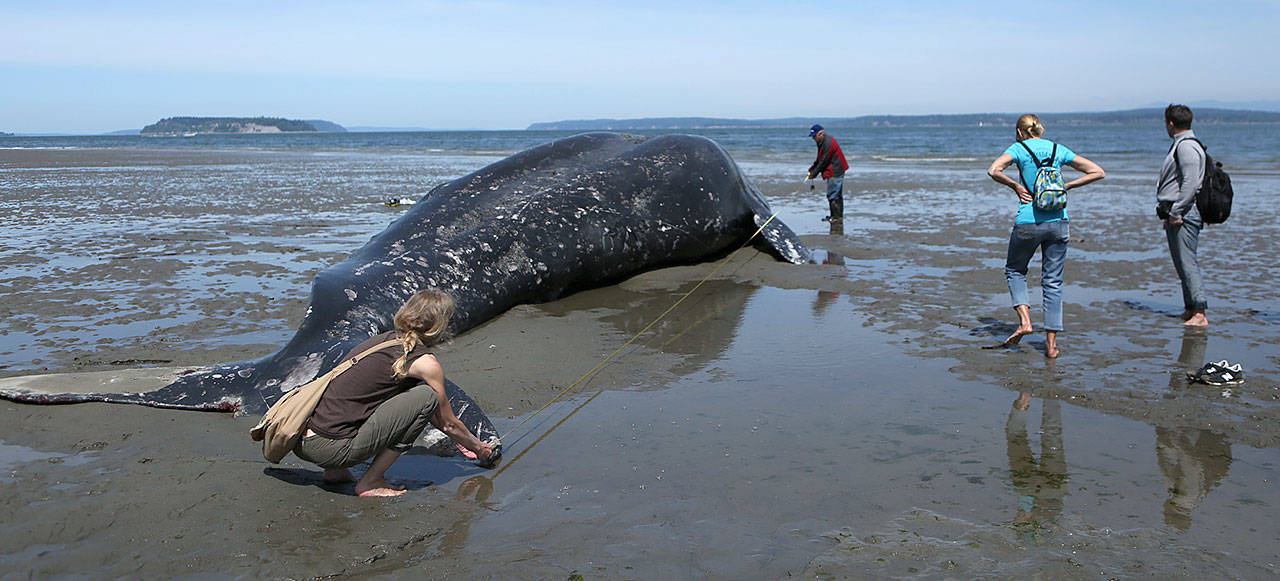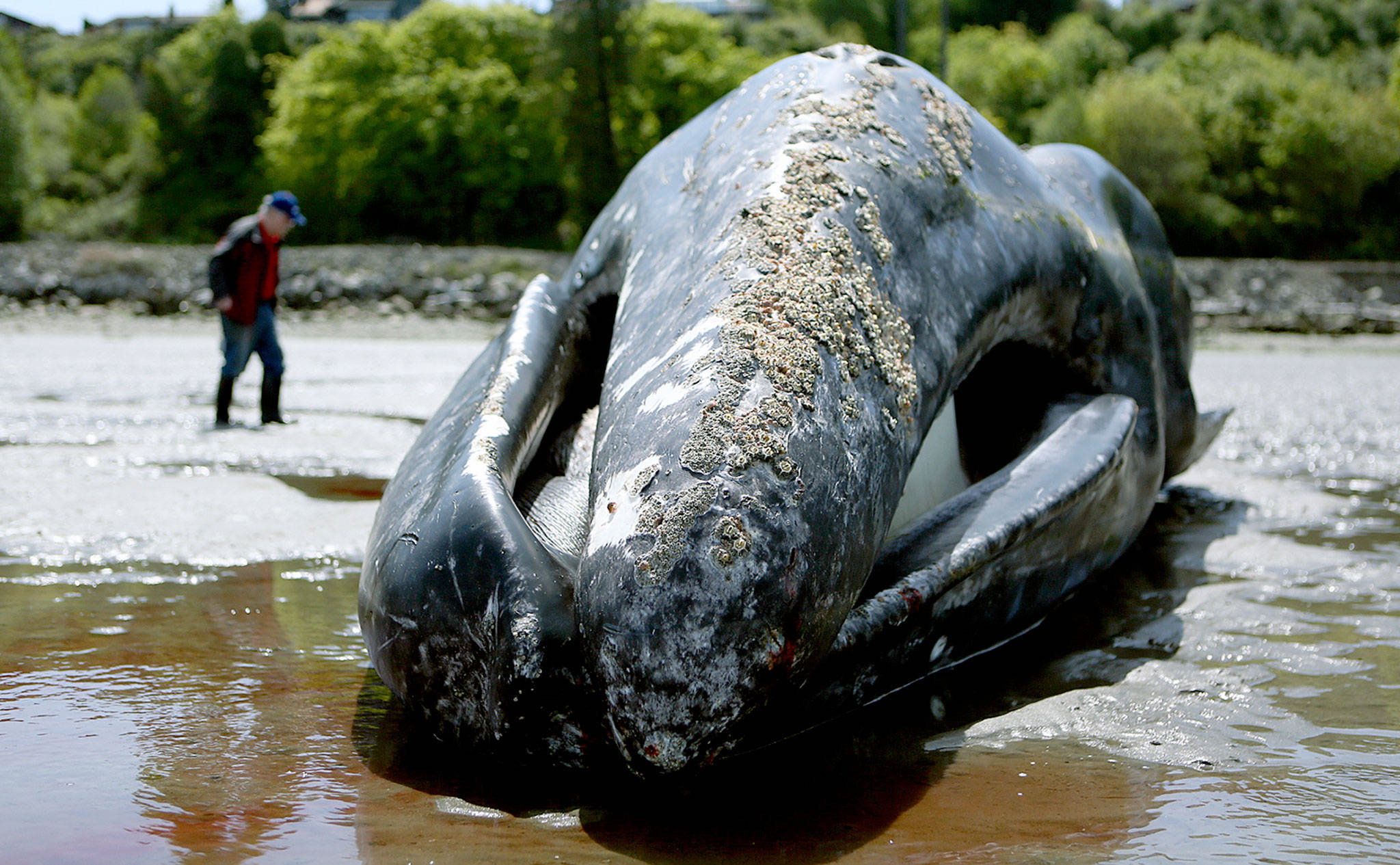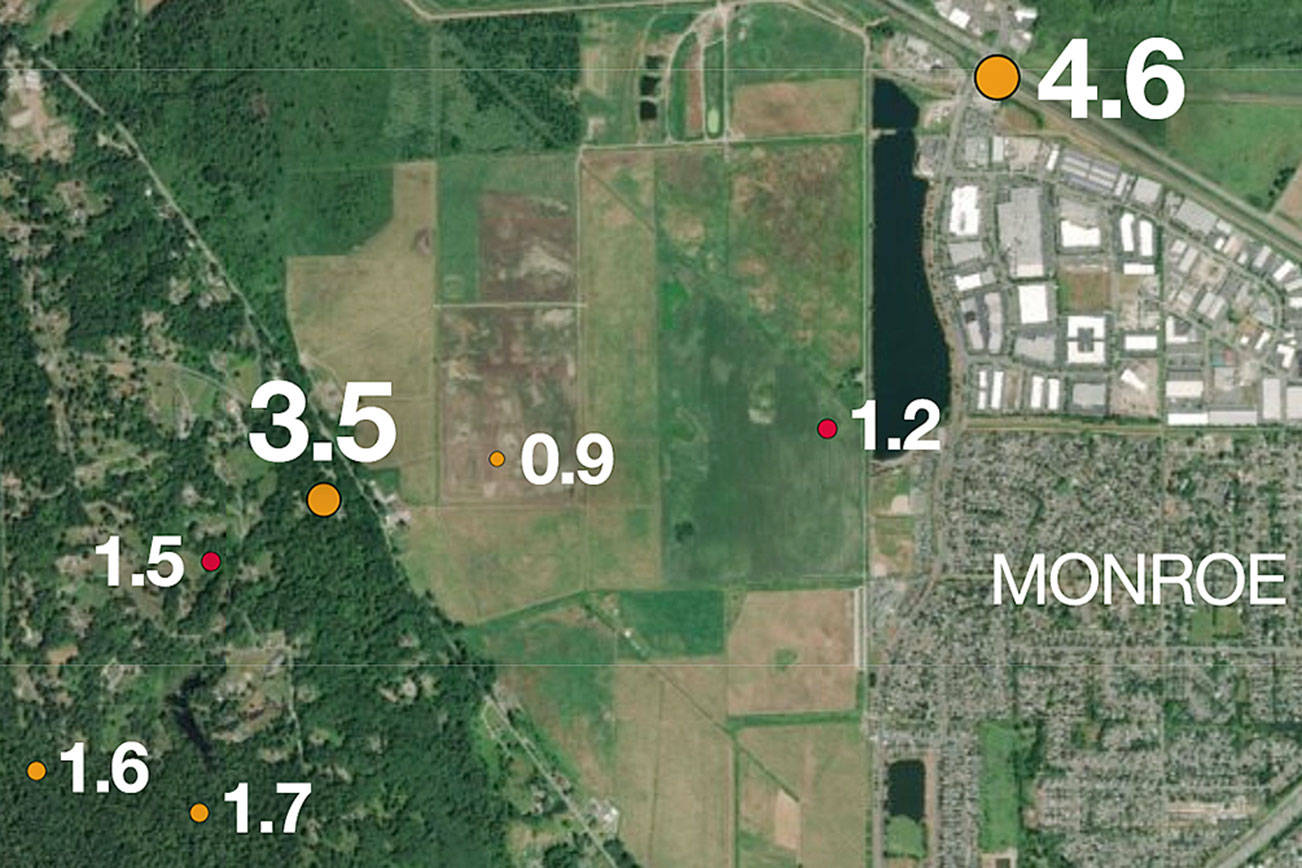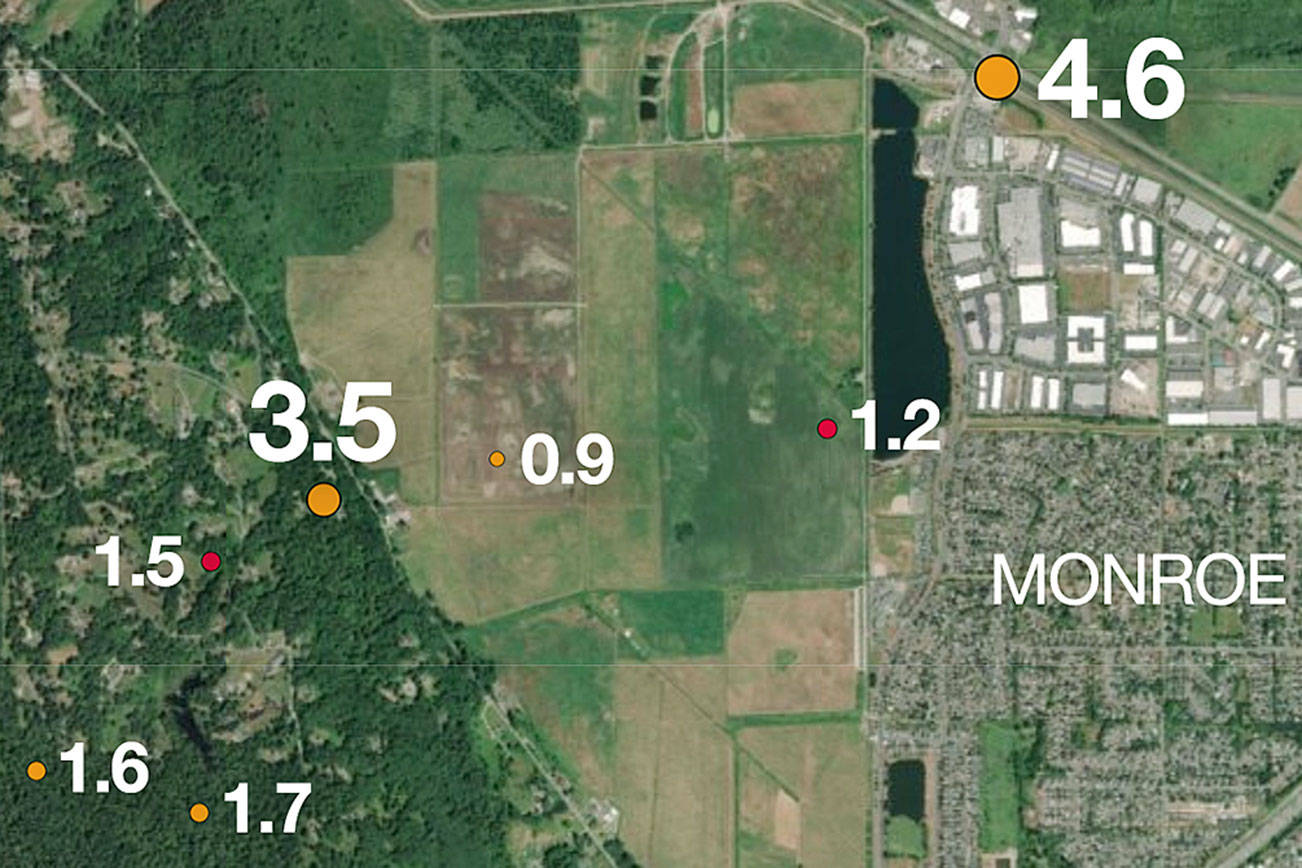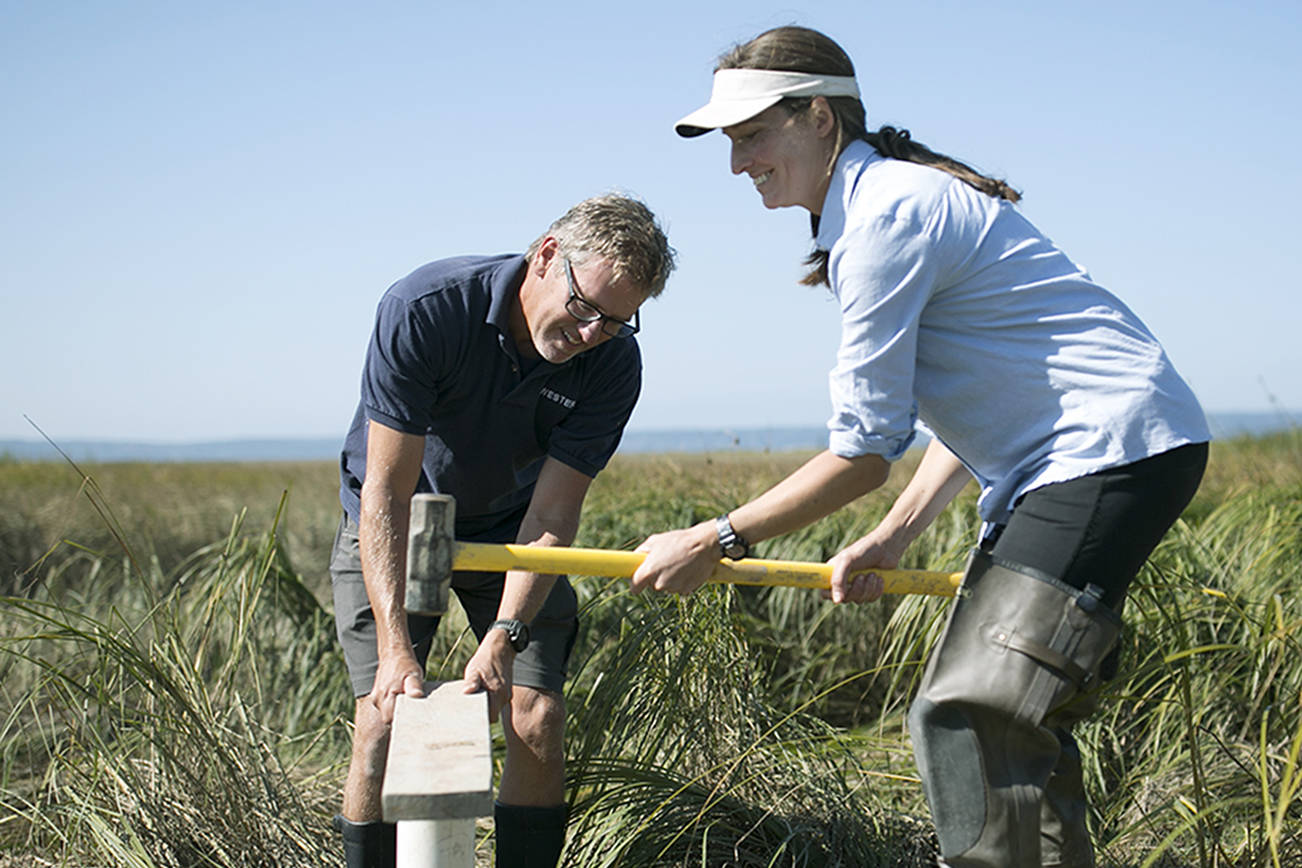EVERETT — Beachgoers gathered around a 43-foot-long gray whale Monday, examining the barnacles on its back and the scars in its rubbery skin.
The creature washed ashore Sunday near Harborview Park.
The Everett Police Department and the state Department of Fish and Wildlife are planning to have the carcass towed at high tide on Tuesday to Camano Island, where it will be left to decompose, said Michael Milstein, a spokesperson for the National Oceanic and Atmospheric Administration.
He did not know the exact destination on Camano.
Authorities hope to examine the whale later this week and determine its age, gender and cause of death, Milstein said.
Nearby resident Debbie Ritchhart spotted it from her living room window off Madrona Avenue around 12:30 p.m. Sunday. Worried the whale might still be alive and struggling to breathe, she called 911.
Monday, her husband Brian Ritchhart headed down to the beach with a measuring tape to gather the mammal’s length.
“We’ve been here 30 years and this has never happened before,” he said.
The whale was still beached on the flats Monday afternoon, allowing humans to get a better look at low tide. The only way to access the beach near the whale without trespassing on railroad property is through Howarth Park.
Robert Sennabaum was walking his dog Rex when he came across the carcass.
“I feel like global warming might have something to do with this,” he said.
This is the 13th gray whale to wash ashore in Washington this year, Milstein said. Last year at this time there had been three or four.
But as a whole, Milstein said the gray whale population is doing very well. There are about 27,000 that migrate along the West Coast.
“Overall the population is healthy,” he said. “But when you have a large population like this, it can be more sensitive to changes in the environment.”
Another dead whale was found at Cape Disappointment Saturday, Milstein said.
A number of recently washed-up whales have appeared skinny and malnourished, he said.
An examination has not yet been performed on the whale found in Everett, but Orca Network co-founder Susan Berta said photos show it looks emaciated.
“So what we’re seeing is (the dying whales) not getting enough food in the Bering Sea last summer,” she said.
About 12 whales stop in North Puget Sound annually to feed on their way north, Berta said. They’re usually here from March through the end of May.
“When there isn’t enough food up north is when we get newcomers to our little group,” Berta said. “So we’re waiting to see what happens.”
Port Gardner and Possession Sound commonly are hosts to gray whales and orcas, and occasionally humpbacks.
Julia-Grace Sanders: 425-339-3439; jgsanders@heraldnet.com.
